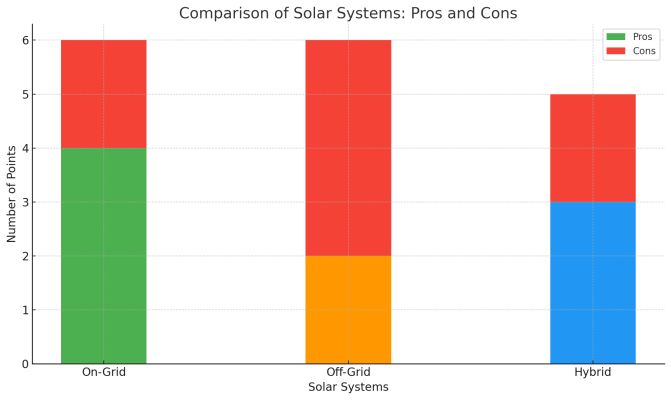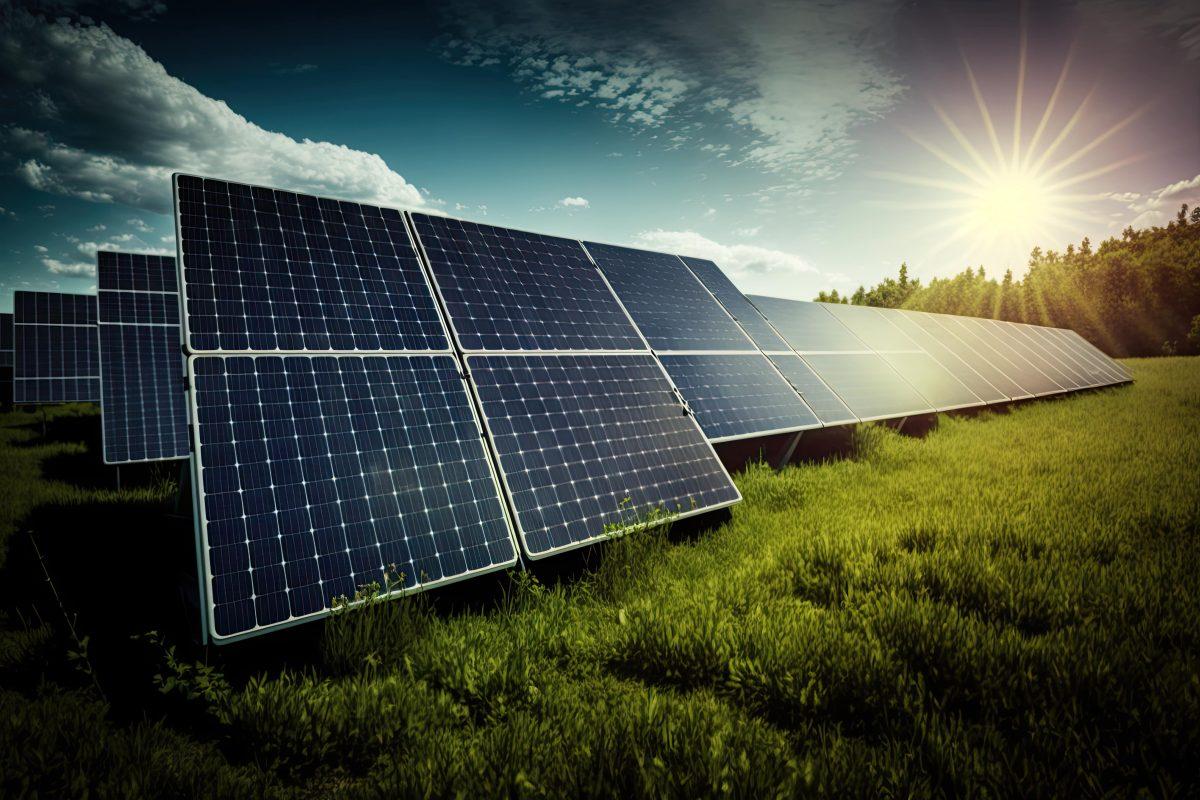Pakistan’s energy landscape is changing. With increasing sunshine hours and frequent power outages, solar power is becoming a popular choice for homes and businesses. But with three main types of solar systems available – on-grid, off-grid, and hybrid – deciding which one is right for you can be confusing. This blog will explore the advantages and disadvantages of each system to help you make an informed decision.
1. On-Grid Solar Systems:
-
Pros:
- Most cost-effective upfront installation.
- Works seamlessly with the national grid for backup power during outages (if net metering is available in your area).
- Low maintenance requirements.
- You can sell excess solar energy back to the grid and earn credits on your electricity bill (net metering).
-
Cons:
- Reliant on a stable national grid. During power cuts, your home will also lose power unless net metering is available.
- Not suitable for remote locations without grid connection.
2. Off-Grid Solar Systems:
-
Pros:
- Complete energy independence – ideal for remote locations or areas with frequent outages and unreliable grid connections.
- Provides backup power during outages.
-
Cons:
- Highest upfront cost due to battery storage requirements.
- Requires careful system sizing to ensure enough energy storage for nighttime and cloudy days.
- More maintenance is needed for batteries.
- No net metering benefits.
3. Hybrid Solar Systems:
-
Pros:
- Combines the benefits of both on-grid and off-grid systems.
- Works with the grid for backup power and net metering (if available).
- Includes batteries for power during outages, offering greater energy security.
-
Cons:
- Higher upfront cost than on-grid systems due to battery storage.
- More complex system with additional maintenance needs for batteries.
Chart Comparing Solar Solution

- On-Grid: 4 pros, 2 cons
- Off-Grid: 2 pros, 4 cons
- Hybrid: 3 pros, 2 cons
This visual representation helps highlight the advantages and disadvantages of each solar system type, making it easier to decide which one might be best for your needs.
So, Which System is Right for You?
The best solar system for your Pakistani home depends on your specific needs and priorities. Here’s a quick guide:
- Choose on-grid if: You have a reliable grid connection, prioritize cost-effectiveness, and net metering is available in your area.
- Choose off-grid if: You live in a remote location with no grid connection or experience frequent power outages with an unreliable grid.
- Choose hybrid if: You want the benefits of both on-grid and off-grid systems, value energy security during outages, and are willing to invest in a more comprehensive solution.
Considerations:
- Net Metering Availability: Inquire with your local electricity distribution company about the availability of net metering in your area.
- Government Incentives: Research any government subsidies or financial incentives available for solar power installations in Pakistan.
- System Sizing and Cost: Consult with reputable solar installers in Pakistan for a customized system design and cost quote based on your energy consumption and requirements.
By understanding the different types of solar systems and considering your specific needs, you can make an informed decision and harness the power of the Pakistani sun to light up your home! Contact Us Now


